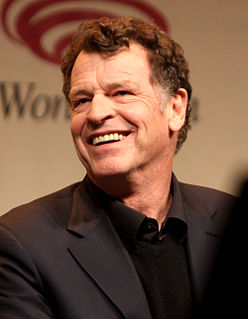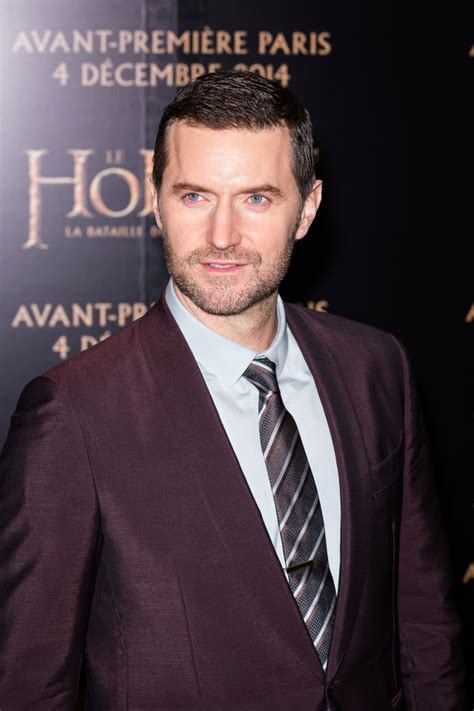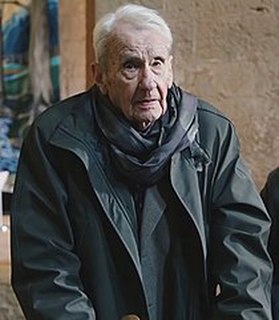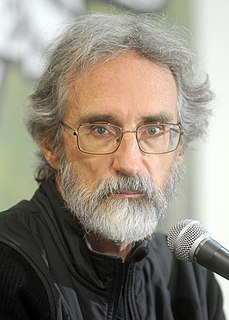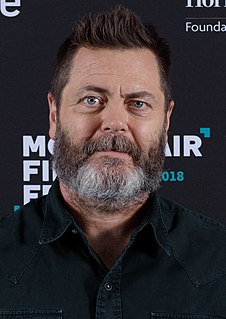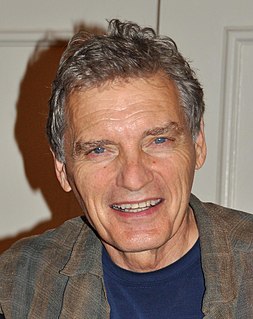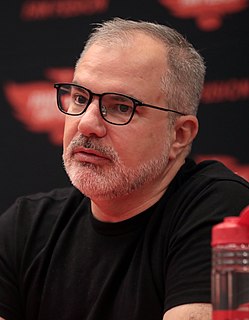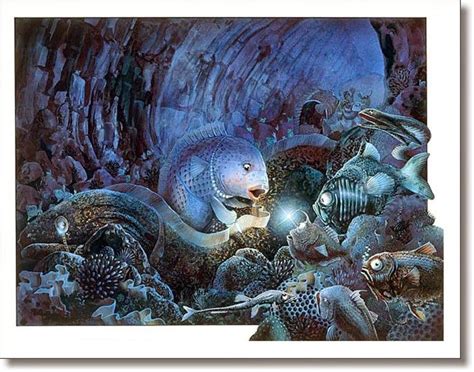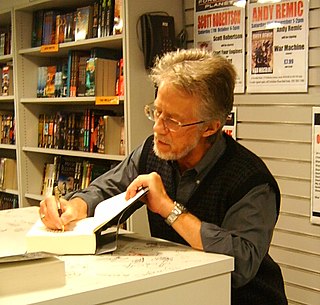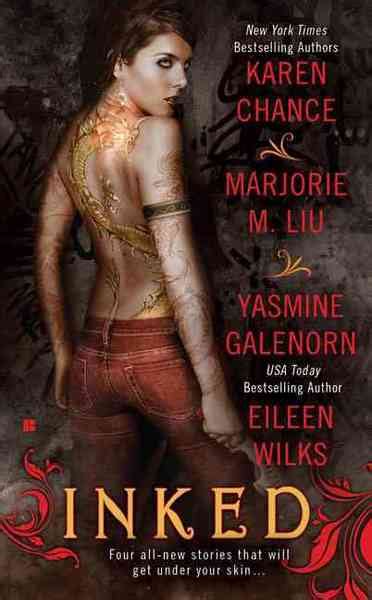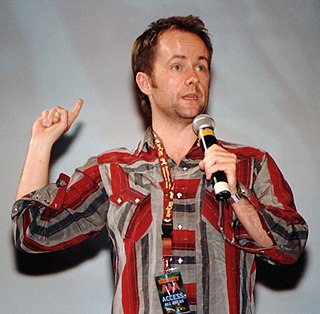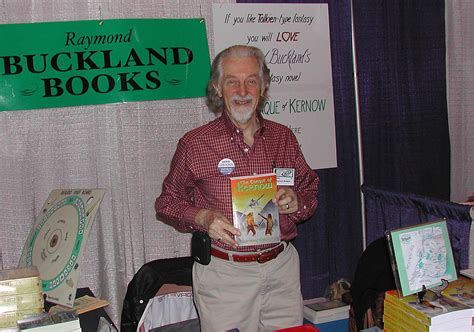Top 124 Tolkien Quotes & Sayings - Page 2
Explore popular Tolkien quotes.
Last updated on April 15, 2025.
They gutted the book, making an action movie for 15-25 year olds. Tolkien became...devoured by his popularity and absorbed by the absurdity of the time. The gap widened between the beauty, the seriousness of the work, and what it has become is beyond me. This level of marketing reduces to nothing the aesthetic and philosophical significance of this work.
At some point, sitting in the school library, during reading period, I looked up from my leopard print hardcover composition notebook where I was scribbling a derivative [John Ronald Reuel ] Tolkien epic full of purple prose in tiny handwriting and thought to myself, "Damn! I am a writer! How did that happen?".
Tolkien, who created this marvellous vehicle, doesn't go anywhere in it. He just sits where he is. What I mean by that is that he always seems to be looking backwards, to a greater and more golden past; and what's more he doesn't allow girls or women any important part in the story at all. Life is bigger and more interesting than The Lord of the Rings thinks it is.
I first read Wendell Berry's short-story collections, "Fidelity" and then "Watch with Me." They just knocked my socks off. The characters and the fellowship of the small town reminded me of my own small town in Illinois.Then I discovered that, much like J.R.R. Tolkien and C.S. Lewis, that all of Berry's fiction was centered in this same town.
Tolkien understood about the things that happen after the end. Because this is after the end, this is all the Scouring of the Shire, this is figuring out how to live in the time that wasn’t supposed to happen after the glorious last stand. I saved the world, or I think I did, and look, the world is still here, with sunsets and interlibrary loans. And it doesn’t care about me any more than the Shire cared about Frodo.
I am sometimes asked to name my favourite books. The list changes, depending on my mood, the year, tricks played by memory. I might mention novels by Nabokov and Calvino and Tolkien on one occasion, by Fitzgerald and Baldwin and E.B. White on another. Camus often features, as do Tolstoy, Borges, Morrison and Manto.
My eighth grade teacher, Mrs. Pabst, had done her master's thesis on Tolkien. She showed me how the trilogy was patterned after Norse mythology. She was also the first person to encourage me to submit stories for publication. The idea of writing a fantasy based on myths never left me, and many years later, this would lead me to write Percy Jackson.
Aw, fudge,' floated down to me, as a couple of golden eyes peered over a third-floor window ledge. 'You're a freaking dhampir. Why are you reading Tolkien?' I shrugged, then had to dodge the potted geranium he threw at me. 'After five hundred years, you've read just about everything. Besides, he had hella world-building skills.
There's a passage about 'rivers of molten rock that wound their way... until they cooled and lay like twisted dragon-shapes vomited from the tormented earth.' That's a perfect description: how did Tolkien know, a quarter century before anyone ever saw a picture of Io? Talk about Nature imitating Art.
As a child I was really into fantasy books with elves and goblins and swords, and I went through a phase for a few years when I was reading endless series. But in the end I became totally fed-up with all these sub-Tolkien rip-offs because they all end up doing the same old things and there's no rigour to it.
I was also a science fiction and fantasy fan, growing up, in games and books and movies. I love Tolkien and I love Dungeons & Dragons, so the opportunity to have a fantasy-based RTS, or real time strategy game, at that time, seemed cool. I started playing it, and the early games were simple, but fun and they had these great heroes.
Ruling is hard. This was maybe my answer to Tolkien, whom, as much as I admire him, I do quibble with. Lord of the Rings had a very medieval philosophy: that if the king was a good man, the land would prosper. We look at real history and it's not that simple... Real-life kings had real-life problems to deal with... My people who are trying to rule don't have an easy time of it. Just having good intentions doesn't make you a wise king.
When I was a kid, I lived in this small town way out in the country. We had three TV channels and one radio station. I couldn't even get my hands on good comic books. My aunt, who is a librarian, gave me Tolkien's "The Lord of the Rings," Laura Ingalls Wilder's "Little House on the Prairie," and Lewis's "The Chronicles of Narnia." They were such incredible treasures to have in my somewhat mundane country life.
I wasn't into Tolkien at school really. But the story is timeless, the themes that it touches on are contained in cultures all around the world. The innocent on a quest, the pretender, an inanimate object that holds evil - it's really strange that these themes are there in so many different countries' folklore.
I was heavily influenced by J. R. R. Tolkien, George R. R. Martin, C. S. Friedman, Terry Brooks, Robert Jordan, R. A. Salvatore, and James Clavell to name a few, but of course every book I've ever read, whether I liked it or not, has had an influence... I think I am constantly evolving as a writer, but not to mimic anyone else or mainstream trends.
There are a number of things that I'm trying to get into the books. There's a meta-fictional aspect, if I may use that pretentious word, to writing anything. You're writing in the shadow of all the people that have gone before and, in a way, you're having a dialogue with them. As someone who's read J.R. Tolkien and Robert E. Howard and all the great fantasists before, this is almost my answer to them.
As long as I'm dealing in honesty, I may as well admit that I have been more influenced (as a person) by my childhood readings of Tolkien and Lewis than I have been by any philosophers I read in college and grad school. The events and characters in Narnia and Middle Earth shaped my ideals, my dreams, my goals. Kant just annoyed me.

